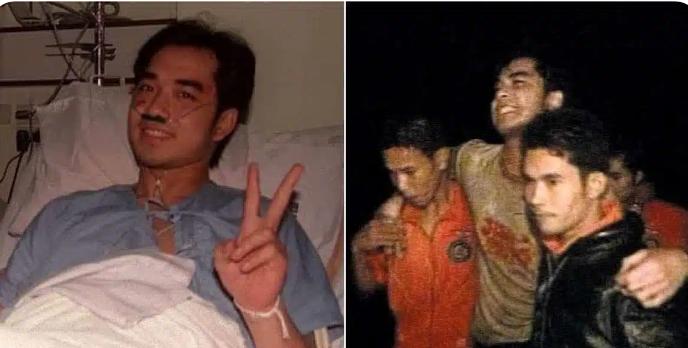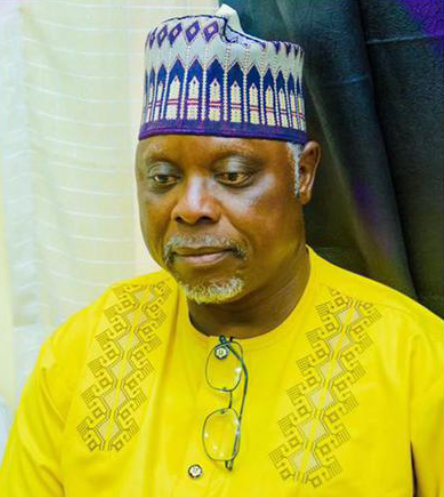
“Seat 11A Saves Again”: Thai Singer Reacts After Air India Sole Survivor Cheats Death in Same Seat He Once Did

In a chilling twist of fate that has left many stunned across continents, Thai singer Ruangsak Loychusak—who survived a harrowing plane crash in 1998—has expressed deep shock and empathy upon learning that the lone survivor of the recent Air India crash was seated in the same seat he once occupied: 11A. The coincidence has triggered emotional memories and raised eerie questions about fate, destiny, and survival.
Loychusak, now 47, shot to fame in the late 1990s as a Thai pop sensation. But behind the glamour and lights, he has lived with a haunting past many fans never truly understood. He was one of just 45 survivors when Thai Airways flight TG261 crash-landed in Surat Thani after departing from Bangkok. The disaster claimed 101 lives out of 146 on board and remains one of the darkest days in Thai aviation history. But Loychusak, seated in 11A, lived to tell the story.
More than two decades later, a tragic parallel unfolded in India. On June 11, 2025, an Air India Boeing 787 Dreamliner traveling from London to Ahmedabad met a disastrous end during its approach, leaving all but one passenger dead. British national Vishwash Kumar Ramesh, 40, was found injured but alive amid the wreckage. His seat? 11A.
When Loychusak heard the news, he said he felt chills. Taking to his Facebook page on Thursday, June 12, the Thai artist wrote, “I had goosebumps when I saw it. The lone survivor of the plane crash in India was sitting in the same seat number as me — 11A. I want to offer my condolences to all those who lost loved ones in the tragedy.” His post immediately went viral, with netizens from Thailand to India calling the coincidence “divine,” “unbelievable,” and even “supernatural.”
Despite not having retained his original boarding pass from the 1998 crash, newspaper clippings and coverage from that time confirmed that he had, indeed, been seated in 11A when the Thai Airways flight went down in the rain-swept swamp near Surat Thani airport. Loychusak was among those who crawled out of the wreckage, bruised and shaken but alive, clinging to life as chaos and screams surrounded him.
The aftermath was no less painful than the crash itself. In an emotional interview with Bangkok Post, he revisited the trauma that never fully left him. “I lived a second life after the crash. For 10 years, I had a hard time flying. My breathing would become difficult even when the air was fine. I didn’t talk much on flights and always stared out of the window. I wouldn’t let anyone close it; it made me feel unsafe,” he confessed.
The singer’s mental scars cut deep. Flashbacks haunted him in silence for years. “The sound of the crash, the smell of burning, even the taste of the swamp water — I remember it all,” he said. “I carried it with me in silence for years. If I saw dark clouds or a rainstorm outside, I would feel terrible, like I was in hell.”
Though he eventually returned to performing and found a way to live again, Loychusak said he never looked at air travel the same way. For him, the seat 11A was more than a location; it was a life-altering space between life and death. To discover that someone else — in a completely different part of the world — had also survived an aviation disaster while sitting in that exact seat reopened emotional wounds, but also brought a strange sense of connection.
“I don’t believe in superstition much,” he wrote on Facebook, “but this has made me think about how mysterious life can be. Maybe 11A is more than just a seat. Maybe it’s a second chance.”
Across the globe, aviation safety experts have weighed in with cautionary perspectives. Coincidence, they emphasize, is not causation. The layout of airplane seats and survival likelihood in a crash depends on a multitude of factors including impact angle, seatbelt usage, proximity to exits, and structural damage zones. Still, the story of 11A is too haunting to ignore.
On social media, the story has sparked a blend of disbelief and fascination. From spiritual forums to aviation enthusiast groups, people are analyzing the seat number, digging into past crash data, and even questioning if airlines might begin treating certain seat numbers as cursed—or blessed.
Some pointed out that in Western cultures, rows with the number 13 are often omitted due to superstition. Could 11A now join that realm of superstition? Or will it be seen as a seat of survival, as users across X and Facebook are now calling it?
Meanwhile, Vishwash Kumar Ramesh remains hospitalized in Gujarat, recovering from injuries sustained in the crash. Details about his condition are limited, but reports say he’s conscious and expected to recover fully. He has not yet made a public statement, and it's unclear whether he knows about the curious connection his survival has sparked.
In Thailand, Loychusak has already extended an invitation to Ramesh, offering to meet him one day if circumstances allow. “I would like to meet him—not as a celebrity, but as a fellow survivor,” he said. “Only people who have lived through something like that can truly understand each other.”
It’s a sentiment that resonates deeply in a world so often divided by language, culture, and distance. Tragedy, after all, can be a strange unifier. And sometimes, it appears, so can a seat number.
As investigations into the Air India crash continue, families mourn, and survivors reflect, the mystery of seat 11A lingers—not as a mere detail in a report, but as a symbol of uncanny survival against the odds. Two men, two disasters, two decades apart. One seat.
And for reasons no expert can explain, 11A keeps bringing people back from the edge of death.


